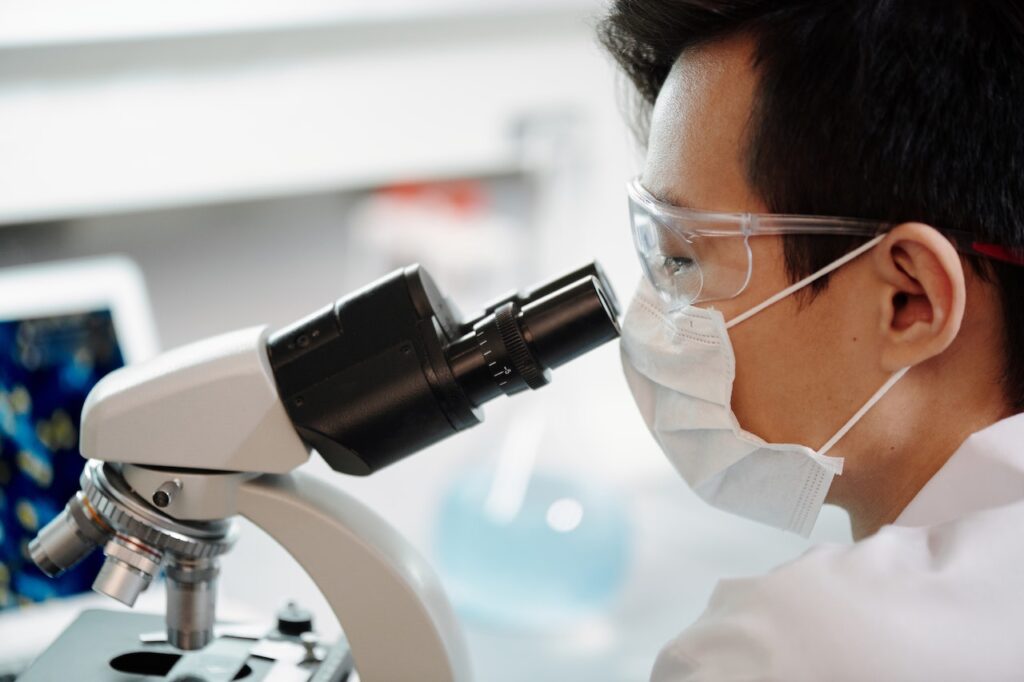
The Ultimate Guide to Understanding Histamine Intolerance
Introduction:
Do you ever experience strange symptoms after eating certain foods? Perhaps you feel itchy, have a headache, or break out in a rash. It’s possible that you have histamine intolerance, a condition that affects many people. In this article, we’ll explore the symptoms, causes, and treatments of histamine intolerance, and provide tips on how to manage the condition effectively.
What is Histamine Intolerance?
Histamine intolerance is a condition where your body can’t break down histamine properly, leading to an excessive buildup of this chemical in your body. Think of histamine like a bucket that fills up with water – when the bucket overflows, you start to experience symptoms. Similarly, when histamine levels get too high, you may start to experience symptoms like headaches, hives, or digestive problems.
In a healthy body, histamine is normally broken down by enzymes in your gut and liver. But for people with histamine intolerance, this process doesn’t work properly, leading to a buildup of histamine in the body. This can happen due to a variety of factors, including genetics, gut imbalances, or a deficiency of the enzyme DAO (diamine oxidase) that helps break down histamine.

Symptoms of Histamine Intolerance:
Symptoms of histamine intolerance can vary from person to person, but there are some common ones to look out for. These can include:
- Headaches
- Hives
- Nasal congestion
- Digestive issues like bloating and diarrhea
- Anxiety
- Difficulty sleeping
It’s important to note that these symptoms can be triggered by a wide range of factors, from stress to medications, which can make it difficult to pinpoint the root cause of the issue. Additionally, there are certain things that can worsen symptoms, such as consuming high-histamine foods or drinks, alcohol, and certain medications. If you suspect you have histamine intolerance, it’s important to speak with a healthcare professional to determine the best course of action for your specific needs.
Causes of Histamine Intolerance:
There are many possible causes of histamine intolerance. Some people may be genetically predisposed to the condition, while others may develop it due to gut issues such as leaky gut syndrome, SIBO (small intestinal bacterial overgrowth), or IBS (irritable bowel syndrome). Certain medications can also trigger histamine intolerance, including some antidepressants, blood pressure medications, and nonsteroidal anti-inflammatory drugs (NSAIDs).
Additionally, certain health conditions such as mast cell disorders can make you more prone to histamine intolerance. Other potential causes of histamine intolerance, include:
- Reduced activity of the enzymes responsible for breaking down histamine
- An overproduction of histamine due to bacterial overgrowth in the gut
- Consumption of histamine-rich foods
- Certain medications that interfere with histamine breakdown or increase histamine release
It’s important to note that the causes of histamine intolerance can vary from person to person, and identifying the underlying cause can be challenging. If you suspect you may have histamine intolerance, it’s important to work with a healthcare provider to determine the root cause and develop an appropriate treatment plan.
Diagnosis of Histamine Intolerance:
Diagnosing histamine intolerance can be tricky, as there’s no definitive test for the condition. However, your doctor may conduct blood tests or stool tests to rule out other conditions, or suggest a histamine-restricted diet to see if your symptoms improve. A histamine-restricted diet involves avoiding high-histamine foods and reducing your intake of histamine-releasing foods.

Treatment of Histamine Intolerance:
The good news is that histamine intolerance is manageable with the right approach.
Now that you have a better understanding of histamine intolerance and its potential effects on your body, you might be wondering what steps you can take to manage it. While there’s no one-size-fits-all solution, there are several strategies that can help you alleviate symptoms and improve your overall health.
1. Identify and avoid high-histamine foods:
One of the most effective ways to manage histamine intolerance is to avoid or limit foods that are high in histamine or trigger its release. Some common culprits include fermented foods, aged cheese, smoked meat, shellfish, and alcohol. Keeping a food diary can help you identify which foods are triggers for you.
2. Eat a low-histamine diet:
In addition to avoiding high-histamine foods, you can also try eating a low-histamine diet. This involves focusing on fresh, whole foods that are low in histamine, such as fresh fruits and vegetables, lean meats, and gluten-free grains. Some people find that following a low-histamine diet for several weeks can help reduce symptoms.
3. Consider DAO supplements:
DAO is an enzyme that helps break down histamine in the body. Some people with histamine intolerance have low levels of DAO, which can make it difficult for their bodies to process histamine effectively. Taking DAO supplements may help alleviate symptoms by increasing the amount of DAO in your system.
4. Address underlying gut issues:
Histamine intolerance is often associated with gut issues, such as leaky gut syndrome and small intestinal bacterial overgrowth (SIBO). Addressing these underlying issues can help reduce histamine levels and improve symptoms. This may involve working with a healthcare practitioner to address any gut issues you may have.
5. Reduce stress:
Stress can exacerbate histamine intolerance symptoms by triggering the release of histamine in the body. Finding ways to reduce stress, such as practicing meditation, yoga, or deep breathing exercises, can help alleviate symptoms and improve your overall health.
6. Try natural antihistamines:
There are several natural antihistamines that may help reduce histamine levels and alleviate symptoms. Some examples include quercetin, nettle leaf, and vitamin C. These can be found in supplement form or in certain foods.
7. Consider medication:
In some cases, medication may be necessary to manage histamine intolerance symptoms. Antihistamines are a common option, but you should work with a healthcare practitioner to determine which medication is best for you.

Conclusion
Histamine intolerance is a common condition that can cause a range of frustrating symptoms. It’s important to remember that histamine intolerance is a complex issue, and there’s no one-size-fits-all solution. However, by taking steps to reduce your histamine load and address any underlying gut issues, you can improve your symptoms and overall quality of life.
Recommended
- All Post
- FODMAP
- Gut Health
- Histamine Intolerance



